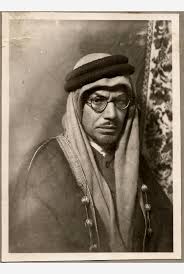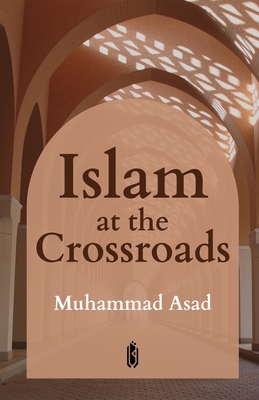Overview
About this Book
Summary of Islam at the Crossroads by Muhammad Asad
Muhammad Asad’s Islam at the Crossroads is a thought-provoking exploration of the challenges facing the Muslim world in the modern era. Written in the early 20th century, the book examines the tension between Islamic tradition and the rapid advancements in Western civilization. Asad provides a critical analysis of Western influences on Muslim societies while emphasizing the need for Muslims to revive their spiritual and intellectual heritage.
Key Themes
1. The Loss of Islamic Identity
Asad argues that many Muslims have abandoned their unique cultural and spiritual identity by uncritically adopting Western customs and values. This, he believes, has led to a weakening of Islamic societies and their moral foundations.
2. The Need for Intellectual Revival
The author calls for Muslims to engage in an intellectual revival rooted in Islamic principles. He stresses that Islam is not opposed to modernity but cautions against blind imitation of Western ideologies, which often prioritize materialism over spirituality.
3. Critique of Western Civilization
While acknowledging the achievements of Western science and technology, Asad criticizes its focus on material progress at the expense of ethical and spiritual values. He contrasts this with Islam’s holistic approach, which integrates spiritual and material aspects of life.
4. The Role of Education
Asad highlights the importance of reforming the education system in Muslim countries. He advocates for an educational framework that combines modern knowledge with Islamic teachings to produce well-rounded individuals capable of contributing to society.
5. Return to Authentic Islam
The book emphasizes the need for Muslims to reconnect with the Quran and Sunnah, not as relics of the past, but as dynamic sources of guidance for contemporary challenges. Asad urges Muslims to take pride in their faith and draw strength from its timeless principles.
Conclusion
Islam at the Crossroads serves as a wake-up call for Muslims to reevaluate their relationship with Western modernity and to rediscover the transformative power of their faith. Muhammad Asad’s insights remain relevant today, as they provide a framework for navigating the complexities of maintaining Islamic values in a rapidly changing world.
The book is both a critique of Western materialism and a passionate plea for Muslims to revive their spiritual, cultural, and intellectual legacy.
About the Author
MUHAMMAD ASAD
Ukrainian
About Muhammad Asad
Muhammad Asad (1900–1992) was a renowned Islamic scholar, writer, diplomat, and thinker. Born as Leopold Weiss in Austria-Hungary, he converted to Islam in 1926 and dedicated his life to understanding and interpreting the religion for modern times. His contributions to Islamic thought and his efforts to bridge the gap between Islamic and Western civilizations have made him a prominent figure in the 20th century.
Early Life and Conversion to Islam
- Birth Name: Leopold Weiss
- Date of Birth: July 2, 1900
- Place of Birth: Lviv, Austria-Hungary (now Ukraine)
- Asad was born into a Jewish family and received a traditional Jewish education. He also studied philosophy and art history at the University of Vienna.
- During his travels in the Middle East as a journalist in the 1920s, he was deeply impressed by Islamic culture, the Quran, and the people’s sense of spirituality and purpose.
- His reflections led him to convert to Islam in 1926, adopting the name Muhammad Asad, which means "Muhammad the Lion."
Major Contributions
-
Writing and Scholarship
- Asad wrote extensively about Islam, addressing its spiritual, social, and intellectual dimensions. His works are recognized for their depth and clarity, making Islamic teachings accessible to modern audiences.
- Notable Works:
- The Road to Mecca (1954): An autobiographical account of his spiritual journey and conversion to Islam.
- Islam at the Crossroads (1934): A critique of Western materialism and a call for Muslims to reconnect with their faith.
- The Message of the Qur'an (1980): A widely acclaimed translation and commentary on the Quran.
-
Diplomacy and Political Role
- After the establishment of Pakistan in 1947, Asad became an influential figure in its early years.
- He served as Pakistan's first Director of the Department of Islamic Reconstruction and later as a diplomat, including as the country's representative to the United Nations.
-
Philosophy and Vision
- Asad believed Islam is a complete way of life that balances spiritual, moral, and material needs.
- He advocated for an Islamic revival based on critical thinking and a return to authentic sources like the Quran and Sunnah.
- He stressed the compatibility of Islam with reason, science, and modernity.
Legacy
- Muhammad Asad's works continue to inspire Muslims around the world, particularly those seeking a modern understanding of Islam rooted in its core principles.
- His life exemplifies a harmonious blend of Eastern and Western cultures, making him a unique bridge between civilizations.
- He is celebrated as one of the most important Muslim thinkers of the modern era, whose intellectual contributions remain relevant in addressing contemporary challenges faced by the Muslim world.
Death
- Date of Death: February 20, 1992
- Place of Death: Mijas, Spain
Muhammad Asad passed away in Spain, leaving behind a legacy of profound scholarship and a life dedicated to the service of Islam.

